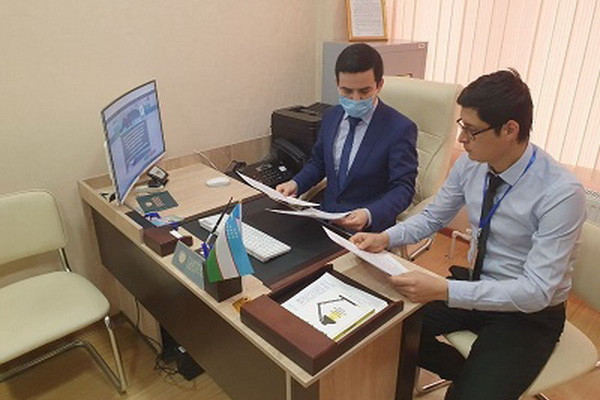According to the resolution of the Cabinet of Ministers from 17 September 2020, in the city of Namangan, the staff of lawyers in 9 state bodies, including the state tax inspectorate of the city of Namangan, the financial department, the Extra-budgetary pension fund, medical association, department of culture, department of public education, department of preschool education, Namangan state forestry, improvement department, a center for providing legal services to state bodies and institutions was created. This is reported by the Public Relations Department of the Ministry of Justice.
So far, 881 orders, 53 contracts and 112 labor contracts in the form of legal documents have been received by the center for examination.
1,046 received documents of a legal nature were checked for legality in the course of a legal examination, of which 18 projects in the form of orders of state bodies and institutions were returned to the authors due to inconsistency with the legislation, including because they did not meet the requirements of legislative technology.
All services are provided by the Center remotely using digital technologies through a single electronic system “E-huquqshunos”.
What positive results are expected from the experiment?
First, such an approach will avoid pressure from the employer, that is, lawyers will give opinions on the documents not of their employer, but of organizations not related to it.
Secondly, the exchange of documents with government agencies is carried out through a single electronic system, in which it is impossible to change the document after receiving the conclusion of the legal service.
Thirdly, the creation of the center helps to remove the functions and duties not related to the activities of the legal service. As a result, the staff of the legal services centers will be able to effectively carry out the tasks assigned to them.
Fourthly, today there is one lawyer in all regional organizations. It is difficult for one employee to find a solution to complex legal issues in all areas. The creation of the center will allow solving legal problems collegially and establishing a system according to the “teacher-student” principle, which does not currently exist.
Fifth, the creation of the center will improve the material support (salary) of lawyers.
If the experiment justifies itself and gives the expected positive results, then similar centers for the provision of legal services will be opened in all regions of the country.







